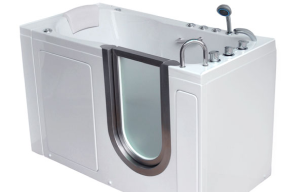Understanding the Need for Senior-Specific Investment Accounts
As you step into your retirement years, your financial priorities and risk tolerance often change. Seniors tend to seek a balance between maintaining their wealth, generating income, and protecting their savings. This is where investment accounts tailored to seniors come into play, offering a variety of options designed to meet these specific needs.
The Classic: Traditional IRAs
For seniors, a Traditional Individual Retirement Account (IRA) is a popular option. Contributions are frequently tax-deductible, making it a wise choice if you have a high income and want to lower your tax bill. Remember that retirement withdrawals are taxed like ordinary income, so prepare accordingly.
Roth IRAs for Tax-Efficient Growth
Roth IRAs, on the other hand, allow for tax-free withdrawals, which can be quite beneficial for seniors trying to maximize their after-tax income. While there are no age restrictions for contributing, keep in mind that Roth IRAs need after-tax contributions. If you anticipate higher tax rates throughout retirement, this style of account is ideal.
The Dependable 401(k)
If you're still working during your retirement years, you might have access to a 401(k) plan. While this is technically not a dedicated senior investment account, it can be a powerful tool for building your retirement nest egg. Plus, many employers offer a catch-up provision, allowing those aged 50 and above to contribute more annually.
Safe Harbor in the Storm: CD and Money Market Accounts
Certificates of Deposit (CDs) and Money Market Accounts offer a safe option to invest your money while collecting a little interest rate. They are ideal choices for seniors who want to invest a portion of their savings in low-risk accounts. However, keep in mind that the returns are typically smaller than those obtained from riskier assets.
Dabble in Stocks: Senior-Friendly Brokerage Accounts
For seniors who want to dip their toes into the stock market, there are brokerage accounts tailored to your needs. Look for accounts with low fees, user-friendly interfaces, and educational resources to help you make informed investment decisions. A diversified portfolio that balances stocks and bonds can be a wise choice for seniors.
Socially Responsible Investing: ESG Funds
Environmental, Social, and Governance (ESG) funds have grown in popularity among investors seeking to have a beneficial impact on the world while earning a profit. Many seniors are drawn to these investing opportunities because they connect with their values and provide potential financial development.
Fixed Annuities for Guaranteed Income
Consider fixed annuities if you want a consistent income source in retirement. These insurance products offer guaranteed payouts, making them an excellent choice for seniors who wish to ensure a steady income during their retirement years. Remember that annuities have different terms and conditions, so carefully read the contract before committing.
Long-Term Care Annuities for Health Expenses
Health costs might become a major concern as you become older. Long-term care annuities provide a one-of-a-kind solution by covering the costs of medical care and assisted living facilities. These annuities can be a lifeline for seniors who are concerned about future healthcare costs.
The Importance of Diversification
Diversifying your investing portfolio is essential for risk management. As a senior, you should choose a portfolio that delivers both growth and stability. Diversification allows you to manage risk and reward, enabling a happy retirement free of market volatility.
Keep an Eye on Fees
High fees can reduce your returns, which is especially harmful for seniors living on a fixed income. Consider the fees associated with each choice when choosing investing accounts, and choose low-cost accounts whenever available.
The Risk Tolerance Balancing Act
It is critical to understand your risk tolerance. Seniors frequently have lower risk tolerance than younger investors, which is why capital preservation assets such as bonds and CDs are attractive alternatives. It is critical to achieve a balance between safeguarding your assets and creating rewards.



